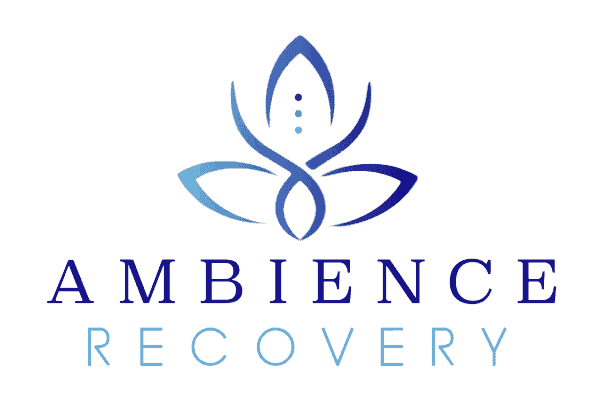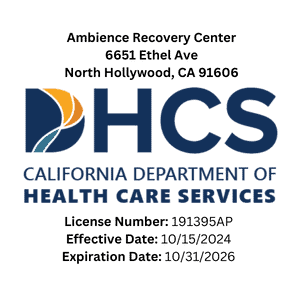Key Takeaways
- Drug tolerance means needing more of a substance to achieve the same effect.
- Dependence occurs when the body experiences withdrawal without the substance.
- Both conditions can lead to addiction, requiring comprehensive recovery treatment.
Introduction
Drug tolerance and dependence are standard terms in discussions about addiction, but what do they mean? While they share connections, they describe different aspects of how drugs affect the body and mind.
Understanding these concepts is crucial to recognizing addiction’s complexities and finding the best ways to treat it. This article explores the definitions, differences, and recovery strategies for drug tolerance and dependence.
What is Drug Tolerance?
Drug tolerance develops when the body adapts to the presence of a substance, requiring higher doses to achieve the same effect. Over time, the brain and body adjust to the drug, reducing its impact.
For example, someone who uses painkillers regularly might find that the usual dose no longer provides relief. This can lead to increased consumption, which raises the risk of further complications.
Types of Tolerance
Tolerance can take different forms. Acute tolerance happens quickly, sometimes within a single use, while chronic tolerance develops over weeks or months. Behavioral tolerance occurs when the body learns to adjust to drug effects, such as maintaining balance despite drinking alcohol.
What is Drug Dependence?
Drug dependence occurs when the body or mind becomes reliant on a substance to function normally. If the drug is removed, withdrawal symptoms can appear.
Physical Dependence
This type of dependence shows up in the body. Symptoms might include nausea, shaking, sweating, or even seizures, depending on the drug.
Psychological Dependence
Psychological dependence refers to cravings and the emotional need for a substance. For instance, someone may feel unable to cope with stress without using drugs or alcohol.
Tolerance and Dependence: Key Differences
Although tolerance and dependence often occur together, they are not the same. Tolerance describes needing more of a drug for the same effect, while dependence involves withdrawal symptoms when the substance is absent.
For example, a person can develop a tolerance to caffeine without being dependent on it. However, if they experience headaches or fatigue without coffee, dependence may be present.
How Tolerance and Dependence Impact the Body
Tolerance and dependence can lead to significant physical and mental challenges.
Physically, the body may experience stress as it struggles to adapt to constant drug use. Liver and kidney damage are common with prolonged substance use. Mentally, dependence can cause anxiety and depression, as people often feel trapped in a cycle of needing the drug.
The combination of tolerance and dependence also increases the risk of overdose. As higher doses are needed to feel the same effects, the likelihood of dangerous levels in the bloodstream rises.
Treating Tolerance and Dependence
Medical Detox
Medical detox is often the first step in recovery. It involves gradually removing the substance from the body under medical supervision. This helps manage withdrawal symptoms and ensures safety.
Therapeutic Approaches
Therapies like Cognitive Behavioral Therapy (CBT) and Dialectical Behavioral Therapy (DBT) teach individuals coping strategies to manage cravings and emotional triggers. These therapies focus on breaking unhealthy patterns and building healthier habits.
Medication-Assisted Treatment (MAT)
For certain substances, medications can reduce cravings and withdrawal symptoms. These treatments work best when combined with counseling and behavioral therapies.
Lifestyle Changes
Recovery also involves adopting healthier habits. Regular exercise, balanced nutrition, and mindfulness practices can improve overall well-being and reduce the urge to use substances.
Conclusion
Tolerance and dependence are challenging aspects of addiction, but they are manageable with the right support. Whether it’s through medical detox, therapy, or lifestyle changes, recovery is achievable.
If you or someone you know is struggling with drug dependence or addiction, reach out for help. Call Ambience Recovery at 866-721-7470 to take the first step toward a healthier, drug-free life.
FAQs
What causes drug tolerance?
Drug tolerance occurs as the body adapts to a substance, making it less effective over time.
Can dependence happen without addiction?
Yes, it is possible to become dependent on a drug without being addicted, though the two often overlap.
What is the best treatment for dependence?
Medical detox, therapy, and medication-assisted treatment are common approaches for treating dependence.
How do I know if I’m dependent on a drug?
Signs include needing the drug to function or experiencing withdrawal symptoms without it.
Is recovery from dependence possible?
Yes, with the right treatment plan and support, recovery is achievable for most people.
What’s the difference between drug dependence and addiction?
Drug dependence occurs when the body adapts to a substance, leading to withdrawal symptoms if use stops, but it doesn’t always involve compulsive use. Addiction, however, is a chronic condition marked by compulsive drug use despite harmful consequences, often accompanied by physical dependence and psychological cravings.
What’s the difference between drug tolerance and drug dependence?
Drug tolerance is when the body requires larger doses of a substance over time to achieve the same effect, while drug dependence is when the body relies on the substance to function normally, leading to withdrawal symptoms when it’s absent. Tolerance may lead to dependence but doesn’t always result in addiction.
What are the different types of drug tolerances?
The main types of drug tolerances include pharmacological tolerance, where the body metabolizes a drug faster over time; behavioral tolerance, where the brain adapts to the drug’s effects through learned behavior; and cross-tolerance, where tolerance to one drug reduces the effects of a related drug. Each type can influence how the drug affects the user over time.
What’s the difference between drug tolerance vs drug resistance?
Drug tolerance occurs when a person needs more of a drug to achieve the same effect, often due to repeated use. Drug resistance, on the other hand, refers to the body’s inability to respond to a drug, typically seen with antibiotics or treatments for diseases like cancer, where the drug loses effectiveness against the target condition.
Resources
https://pubmed.ncbi.nlm.nih.gov/3325655/
https://www.webmd.com/mental-health/addiction/tolerance-dependence-addiction-explained
https://www.medicalnewstoday.com/articles/drug-tolerance
Katie is a Licensed Clinical Social Worker who has worked as a primary therapist, supervisor, and now clinical director for SUD/MH treatment centers for the past 12 years. Katie is trained in Brainspotting, EMDR, Internal Family Systems and Dialectical Behavior Therapy and is passionate about treating substance use disorders, trauma and grief.






